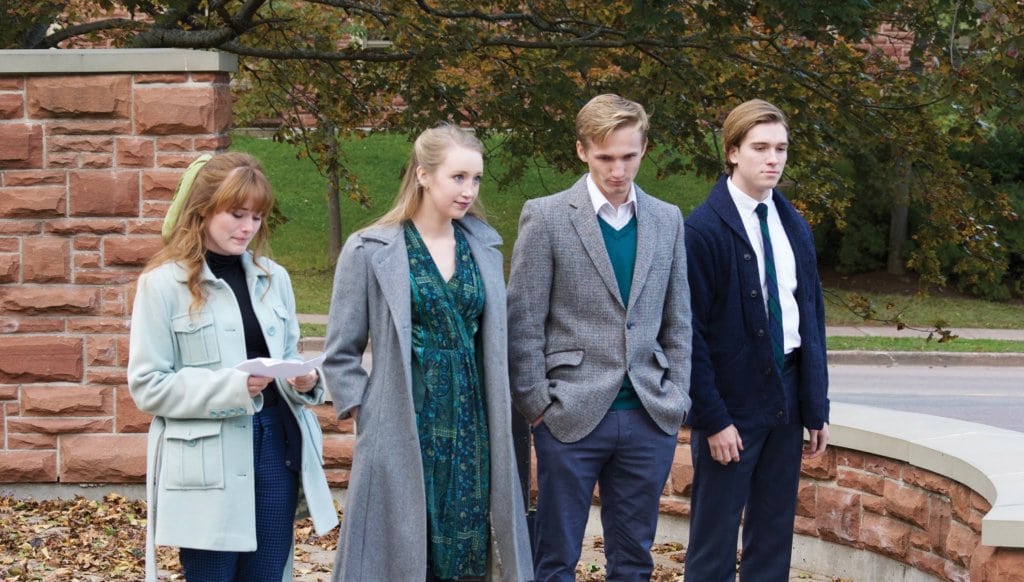Motyer-Fancy’s sustainable production about climate change sheds light on heavy issues

The recent news regarding climate change has undoubtedly shed a new light about environmental issues and how we can collaborate to improve the state of the environment. The UN recently issued a report warning irregular rising temperatures within the next decade or so, introducing the possible extinction of humankind. With a topic as heavy and complex as the end of civilization, it’s interesting to me that there isn’t a more approachable way of discussing this subject. Sierra Belong provided an outlet for Mount Allison students to consider climate change through her direction of the Motyer-Fancy Theatre’s first performance of the 2018-19 school year, ECO.
This past Thursday, I braved the cold and snowy weather to check out ECO and found myself fascinated by all the things I could learn from such a short production. The show took place in the monument for the Mount Allison Memorial Library and Student Centre beside the Purdy Crawford Centre for the Arts. This location was dubbed the “eco-theatre” and was the first of many aspects of the performance that were sustainable and environmentally friendly.
ECO is a collection of short scenes from a theatre anthology called Where is the Hope?: An Anthology of Short Climate Change Plays, edited by Chantal Bilodeau. The name ECO was given to the play by Belong herself, based off of the word “ecology,” which is the branch of biology that studies the relationships of organisms to one another and to the environment. Ecology also refers to a political movement focused on the protection of the environment.
The performance began with a scene called “New Michael” by Stephen Sewell. The scene showed the main character, Michael, arguing with his family about going to school and essentially asking them, “What is the point of trying if we have no future?”
Several more scenes followed, each more thought-provoking than the last. Ideas about waste, science, plants, animals and extinction were all brought up in one form or another, and were essential to the underlying idea of change in this production. Between scenes, the actors recited this quote, which stuck with me for hours after the performance concluded: “135 months. We have 135 months until the planet passes the point of no return for runaway global warming. After that point – 2030 – we will inevitably go extinct, according to the Global Commission on the Economy & Climate.
The final scene of the production added a light-hearted aspect to the somewhat heavy content that preceded it. A short performance entitled “Homo Sapiens” showed two actors interacting with the audience as if they were part of an exhibit at a zoo of the future. The actors, or self-proclaimed “Homo evolvus,” are seen cooing and taking pictures with the Homo sapiens and explaining that they were responsible for their own extinction. This scene held the human race responsible for the demise of their own species in a way we can understand. The audience shared this scene through smiles and laughter. We were encouraged to think about our future in a new way.
The nerve-wracking content not only created a sense of urgency for change, but it held me and the rest of the human population accountable for what has happened to the world, which is exactly what it was meant to do. According to Belong, “ECO advocates for us to take action about the current environmental crisis we’re in. It makes us feel scared, responsible and at times hopeful for our future.”





